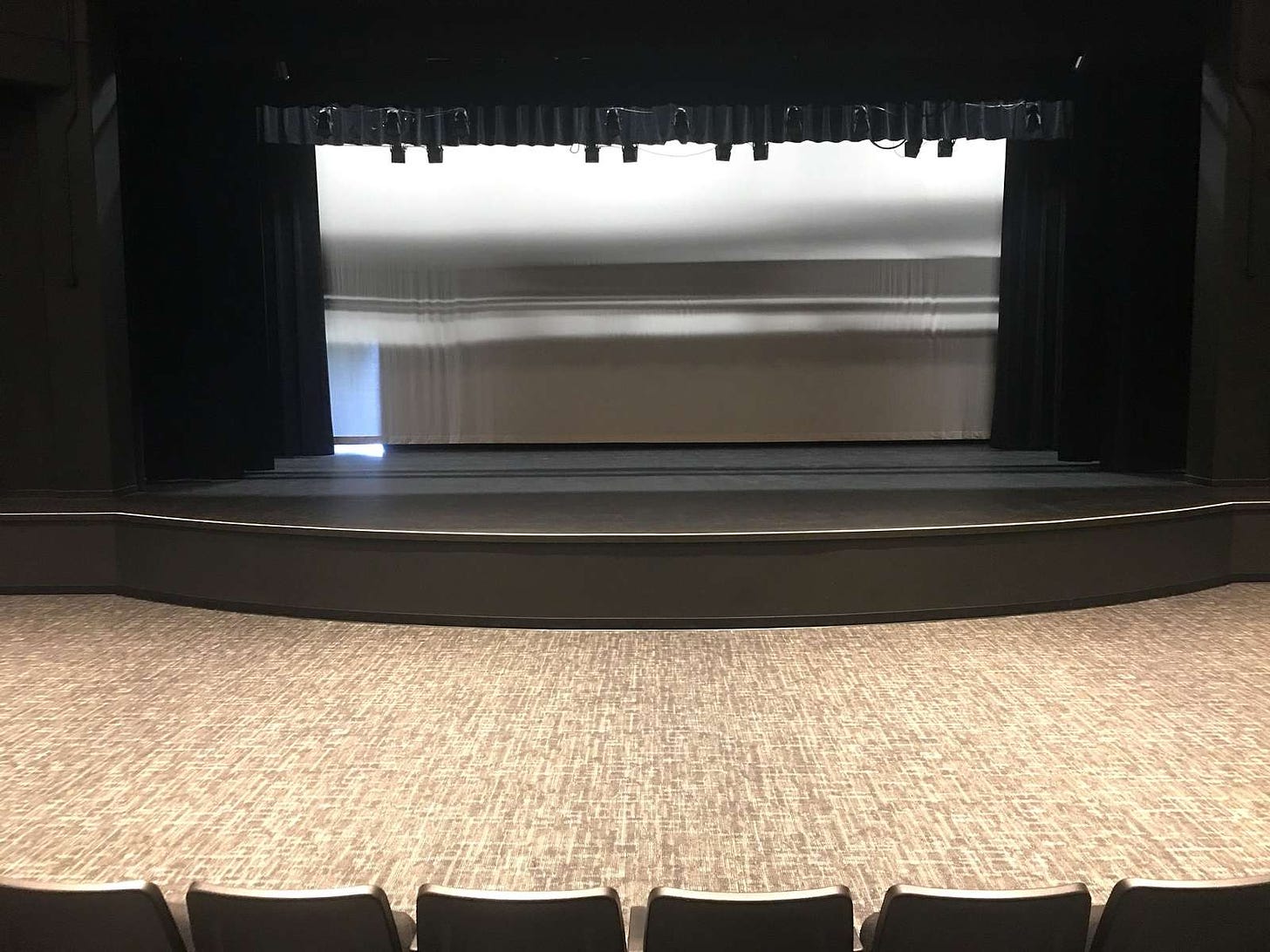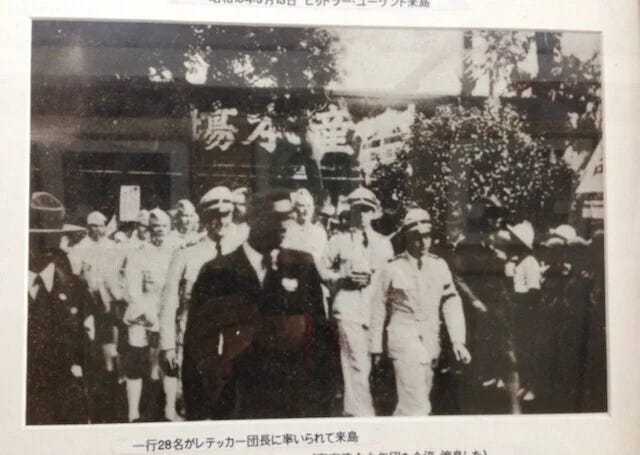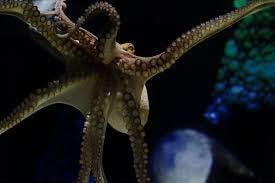“The Impressions of Izu Ōshima” STAGE SHOW
The audience is led into the gymnasium and taken to their seat. While this is happening, the music “Theme to Impressions of Izu Ōshima” is played by Hikaru at the side of the stage, but there is a speaker attached to the keyboard, and every fifth seat in the gym has a speaker underneath the seat. The music gets louder and louder.
Once everyone is seated, the gymnasium starts to fill up with water pumped from the outside water faucet. There are sounds of birds and waves now coming through the speakers. As the audience looks at the stage, they see an image of Izu Ōshima projected by a digital projector. One sees the entire island as if you were looking at it from a boat in the middle of the ocean. Over time, the image of the island gets bigger. You see the volcano and smoke as it comes from the crater. Finally, the boat (the audience) hits the port, and the stage goes pitch black.
The music: “Theme to Impressions of Izu Ōshima.”
As the music fades slowly, Aiko appears at the center of the stage, wearing pinecones glued to her white, tightly fitted blouse and chicken wire as a skirt. She starts to tap dance to a melody that is in her head. The audience is encouraged to make up their melodies in their head to go with her tap dance. There is no actual music being played at this point.
Aiko moves around the stage like a tiger approaching a kill that is either trapped or dying. The rhythm of her tapping joins in with the central theme of Izu Ōshima. As the movements get more intense, the music gets louder when Nakata, with a group of young boys dressed as Hitler Youth, suddenly makes an appearance on stage right. Nakata, who is wearing all pink. He sashays toward the center of the stage, with the boys in military style, marching behind him in a single file.
“Hold on, Boys, ” he comments loudly. “Who is that over there?”
Pointing toward Aiko as she is still tap dancing. The Hitler Youth boys start to whistle toward her, but Nakata makes a gesture for them to shut up.
Aiko tap dances toward Nakata and the boys, and she eventually gets in line with them. This causes a certain amount of tension and confusion among the Hitler Youth. She takes her hands and touches the boy's shoulders to make them move in a particular direction. She zigzags among them to separate the boys, then puts them into two groups, leaving Nakata standing alone watching her. Sort of like a sheepdog keeping the sheep in various groupings, she evens out the number of boys in each section. There are 24 boys. She put them into two separate groups at 12 each.
She then gets on the ground and gestures with her arms for the guys to get on top of her. All 24 are on top; eventually, they start screaming and yelling. Nakata becomes alarmed and starts pulling the boys off the pile-up. As they all stand up - and in their specific grouping, we see Aiko has disappeared.
Nakata calls out for her, and one hears a voice in the back of the gymnasium. “I’m here.” It’s Aiko, dressed like a salaryman, with a gray suit, yellow tie, and white shirt. She then starts to tap dance through the audience, but since there’s water still in the room, you hear the pressure of her shoe/foot hitting against the water. She then and quite dramatically slips into the water, and it seems her head is also under the water. She reaches out to audience members to gain balance or stand up, but something keeps pulling her under.
From the audience's point of view, they can see giant tentacles coming from underneath the water, and occasionally it hits an audience member, who usually screams. From the corner of the room, the octopus appears, and one of its tentacles holds Aiko. The octopus moves to the stage center, and a blue backdrop falls that has a life-size painting of underwater life. On the front of the stage, another scene falls aqua-blue colored see-through plastic. It gives the whole set a sense of being underwater.
The octopus and Aiko are dancing together. The tentacles embrace Aiko as she does her water dance. Ballet-like, the octopus throws Aiko up in the air and gently catches her before she hits the ground. The music is the prepared piano, and it is quite gentle sounding - it almost sounds like rain lightly hitting a field of wild growth.
Yours truly, who is the main character and may I say “hero, ” swims by the Octopus and Aiko. Aiko slowly loses all her clothing as she struggles (through the dance) with the Octopus. She is topless and only wearing a transparent pantie.
Our hero approaches the octopus and, with his knife between his teeth as he swims towards the beast, starts cutting the tentacle that is holding/embracing Aiko. He frees her, gently takes her by the waist, and pulls her to the fresh air.
Intermission:
During intermission, tremendous vacuum cleaners suck up the water from the floors in the gymnasium. Customers who got wet are invited to one of the classrooms to get their clothes dry-cleaned while waiting. They are given towels so that they can wrap themselves around them. A light meal is served for those who pay for it. The menu is stinky fish and mashed potatoes, with a complimentary glass of sake to wash it down.
Act Two:
The curtain opens to Nakata and his boys having a massive feast in what looks like a grand dining room. They’re eating sashimi, and one can see the fish being prepared by the “boys” by stabbing the fish to death and then chewing the skin off to prepare the meal for Nakata. This doesn’t seem to please Nakata, and his mood is sour. His dream was to make the island into a paradise for the homosexual. He was upset that Aiko was on the island and agitated that the ‘hero’ was with her on the island. It seems Nakata had a profound, passionate love for the ‘hero, ’ and the fact that he instead spends his time with Aiko tears him apart. As he eats the various fresh sashimi, he starts to cry. “Boo Hoo.”
He runs off to another part of the stage (right side) and enters his private chambers at the school. The room is decorated with images of Raymond. Including a huge oil painting of him with two dash hounds and a falcon on his arm. He kneels in front of the painting and cries out to it. “Why am I cursed to love a man who doesn’t love me?” As he sobs, that part of the stage turns dark, and in the center stage are Aiko and Raymond. Both are sitting on the side of a cliff, with their legs dangling over the sea.
Raymond: “When I sit down and watch the sea, I think of it as a third character in a play I’m writing.”
Aiko: “When I look at the ocean, I think of your greatness commenting on the sea. ”
Raymond looks at Aiko, and Aiko has nothing but pure passionate love for Raymond. At this point, the audience should be feeling the essence of eros. In the background, we can hear Nakata weeping. It eventually becomes the soundtrack in the background in this specific scene.
Aiko: I cry thinking about what you must go through because of your genius. Intellectuals tend to see things beyond mortal men and therefore have to pay the price of just being... Intelligent and beautiful looking.
Raymond: “Dear, dear (pats her arm). “It is a small price to me serving as an artist and philosopher for humankind and all the little creatures that live on this planet. ”
At that very moment, one sees a cat approaching the stage from the back. The cat sits there as another cat joins him (or her). Then another comes from the other side of the stage. Then another from the opposite side. The stage becomes full of cats in real-time, perhaps for an hour.
There are perhaps 100 cats—the weeping stops and the prepared piano. The cats, in unison, start purring. The purring becomes amplified. The two lovers (Raymond and Niko) embrace each other and kiss. They then slowly look up at the sky. The curtain comes down.
CHAPTER 4
I sat there thinking about how it is possible to write down such a masterpiece in such a short time and such an exhausting location. The play is significantly different from the book, but also, one must note that a novel is a novel, and a stage spectacular is a ... Well, a spectacle. As I sat in my office, I could see not that far off in the distant future, where surely they will build a statue of yours truly at the port of Habu, greeting the ships coming in. And perhaps built-in away, where the statue is also saying “sayonara” to the boats leaving.
Nevertheless, my stage spectacular will have a regular showing on the island after I’m buried under one of the trees facing the elementary school—hopefully facing the gymnasium. I’m hoping that Aiko will join me after this life as part of my burial place, but alas, I suspect that she will have other sites in mind and perhaps wants to be buried with someone else. How that is possible, I know, it doesn’t seem likely. Genius is often left with nothing but debt and a lack of female company. It goes with the territory.
The End
Inspiration from Raymond Roussel.






Please take this on the road 👍🏽😀